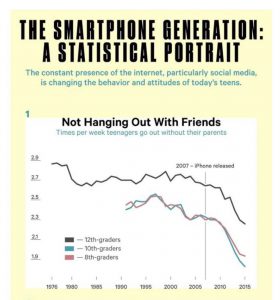From the Principal

Retirement of Anne Court and appointment of Gina Israel as Foundation President
After more than six years of service as President of the St Catherine’s School Foundation Board, Mrs Anne Court (Lowry ’58) has announced her retirement, effective from June this year. I am delighted to advise that Mrs Gina Israel (Shackell ’76) has agreed to succeed Anne, continuing our strong history of alumnae serving as our President.
It has been a delight to work alongside Anne as Chair of the Foundation. Anne’s commitment to our School and our girls has been resolute and we have achieved significant progress in both the professionalism and effectiveness of our philanthropic endeavours through her tenure. The School acknowledges Anne’s exemplary service and we look forward to welcoming her at the official opening of our new Junior School next year and at our annual celebrations in the years ahead.
Incoming President, Gina Israel, is well known to many in our community as School Captain in 1976, a member of the SCOGA Committee from 2006 – 2012 (including a period as Treasurer) and a member of the Foundation since 2012. Gina’s mother Patricia Shackell (Sargood ’46), daughter Juliet Israel (’09) and aunt, Dame Adelaide Doughty DBE (’24) (Nil Magnum Nisi Bonum recipient) also attended our School. Gina will formally assume the President’s role at our August meeting.
A generation shaped by the smartphone
It was a delight to be part of the anticipation and excitement at the International Arrivals Hall last Friday evening, with the parents of our Year 9 girls waiting for their return from their Highlands program in Fiji. Hair braided, fresh faced and full of non-stop chatter about their experience, the girls have shared the joy of their time in the Highlands over the past week. Parents will enjoy reading our Director of Student Programs, Mrs Gina Peele’s, Highlands experience in the Blue Ribbon this week; below are just two of the reflections from parents I received over the week:
“Just thought I’d let you know that Fiji seems to have been an overwhelming success for (my daughter). She raved last night on the way home.”
“This was an experience we could not give her; she loved every minute.”
Many of the Year 9 students openly commented on how they enjoyed the ten days without their phone. Theirs is a generation shaped by the smartphone and by the concomitant rise of social media. The experiences they have every day are radically different from those of the generation that came of age just a few years before them.
The arrival of the smartphone has radically changed every aspect of teenagers’ lives, from the nature of their social interactions to their mental health. These changes have affected young people in every corner of the nation and in every type of household. Where there are cell towers, there are teens living their lives on their smartphones.
A recent report by the ABC News published statistics that are somewhat alarming for parents. Despite the minimum age of 13 years required to open an account on social media networks (such as Instagram, Snapchat and Facebook) former Victorian Police Officer and cyber safety expert, Ms Susan McLean, advises that at least 60 per cent of the 10 and 11-year-old children she saw at schools were on at least one social media site, with the majority using age-restricted platforms.
Professor of Psychology at San Diego State University, Jane Twenge, goes as far to suggest smartphones have destroyed a generation. “More comfortable in their bedrooms than in a car or at a party, today’s teens are physically safer than teens have ever been. They are markedly less likely to get into a car accident and, having less of a taste for alcohol than their predecessors, are less susceptible to drinking’s attendant ills. Psychologically, however, they are more vulnerable than Millennials were: Rates of teen depression and suicide have increased since 2011. It’s not an exaggeration to describe iGen as being on the brink of the worst mental-health crisis in decades. Much of this deterioration can be traced to their phones.”
“The allure of independence, so powerful to previous generations, holds less sway over today’s teens, who are less likely to leave the house without their parents. The shift is significant with the number of teens who get together with their friends dropping by more than 40 percent from 2000 to 2015; the decline has been especially steep recently”.
And, whilst teens are spending less time together, they are still congregating. Needless to say, this time together is now online. Adolescence is a key time for developing social skills, and less face-to-face time reduces the opportunity to establish such skills such as correctly interpreting facial expressions, body language and verbal cues in conversations that are all integral to their social development.
Two weeks in Fiji enabled the Year 9 girls a circuit breaker from their electronic devices, an opportunity to spend time together laughing, singing, dancing and playing with the Fijian children. The challenge for the girls now is to avoid the return to the high levels of social media consumption and to continue to enjoy their interactions just as within Fiji with the cohort.
https://www-theatlantic-com.cdn.ampproject.org/c/s/www.theatlantic.com/amp/article/534198/
Our annual Gala Concert is fast approaching with our musicians in preparation mode this weekend whilst on Music Camp. The Gala Concert, held on Friday 1 September, will be once again held at the Melbourne Recital Centre, providing the students with a first class performance venue. The entertaining evening of music will be based on the theme ‘Fact or Fiction’. Featuring performances of ‘In the Hall of the Mountain King’, ‘Zadok the Priest’, and finishing with a medley of songs from James Bond films. Tickets are now on sale and can be purchased here.




